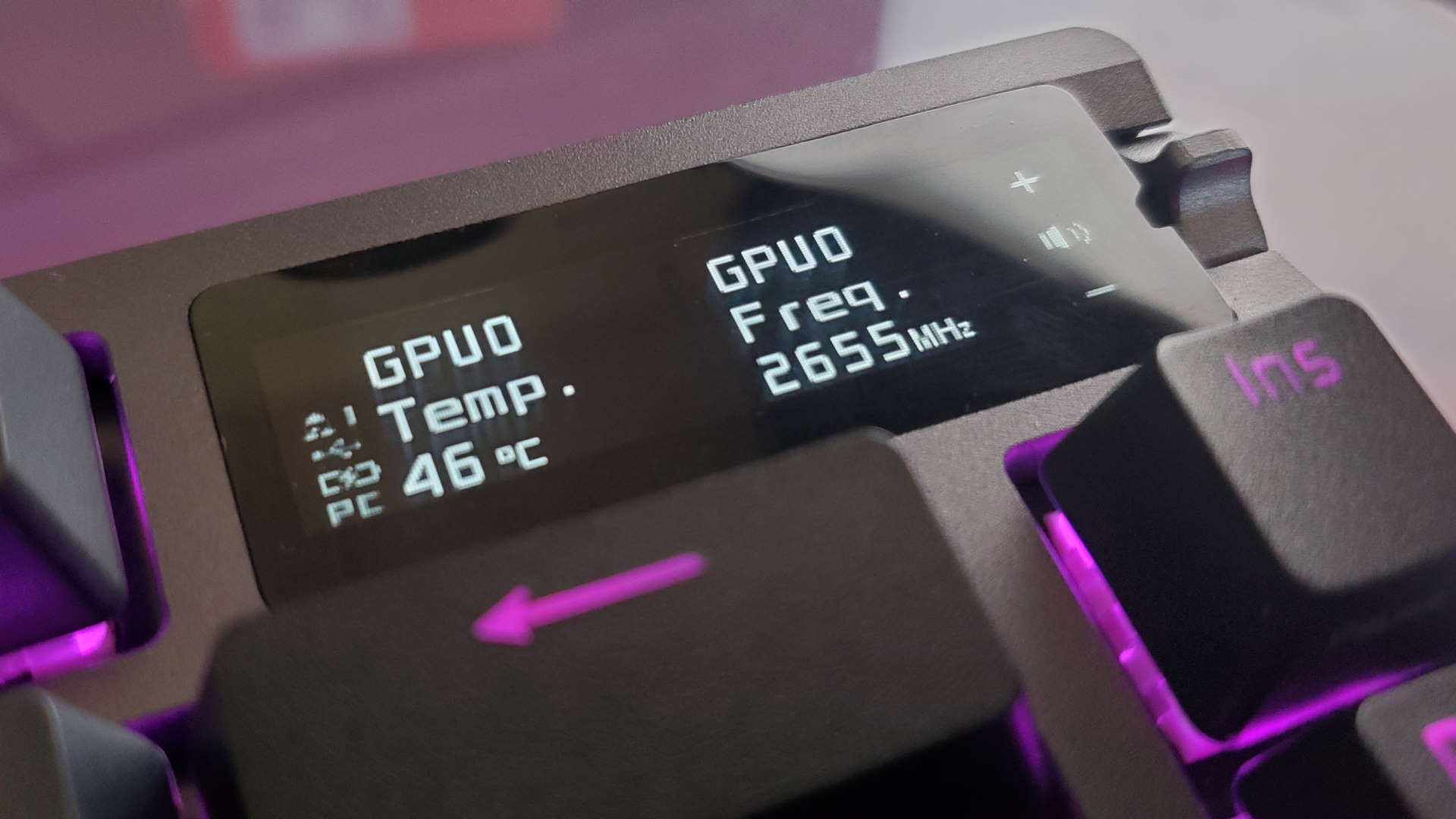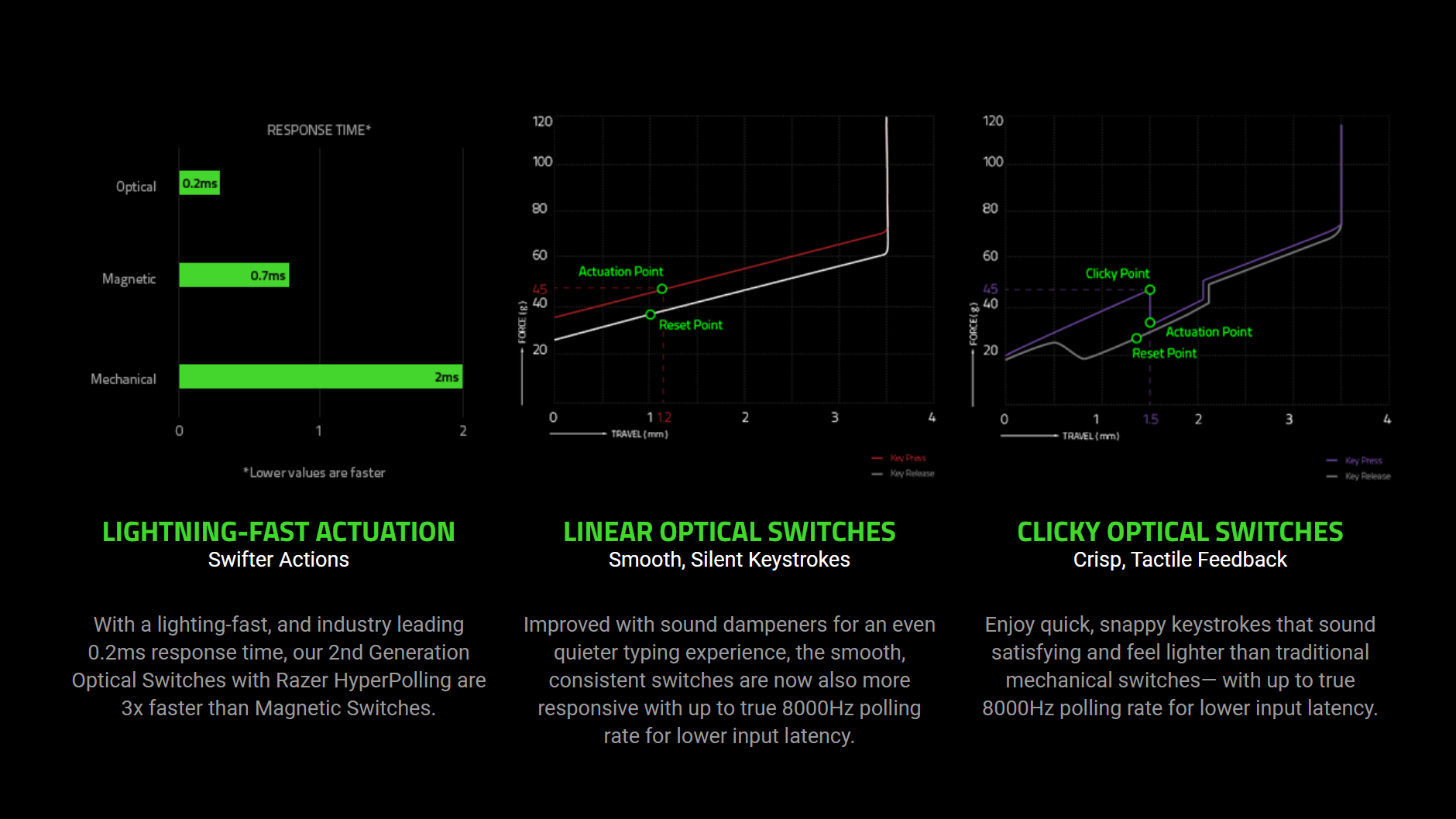You don't need an expensive gaming keyboard

This month I have been mostly playing Nebuchadnezzar: I definitely don't need optical key switches and a 20,000 DPI mouse for this city builder. Though a keen eye for fire hazards and poorly planned irrigation sure helps.
This month I have been testing the latest in PC audio: From a head-tracking soundbar to a new budget wireless headset, I'm looking for the best new kit in 2023.
Listen, you don't need an expensive gaming keyboard. You don't necessarily need a mechanical keyboard, though I would definitely recommend one. PC gaming has a price problem right now, with graphics cards launching with unsightly price tags, without even any help from resellers, and gaming laptops costing as much as a car. But I want to take a moment to say it's okay to save a bit of cash on your keyboard.
The first time I splashed out on a gaming keyboard, it was the Corsair K65 RGB. I spent something like £80 on it, and that's the absolute maximum I could spend on such a lavish luxury. I was working in retail and as a bicycle messenger at the time, and even with both income streams I felt an incredible wave of guilt wash over me for spending so much on something so unnecessary.
I wanted it, though. I'd never had an RGB keyboard, and the backlighting alone kept me occupied for hours as I explored all the entertaining ways to make the pretty lights dance. I'm not here to tell you what you should or shouldn't want. My love for mechanical and marvellous keyboards has only grown over the years—I'm the type of guy to buy limited edition mechanical key switches and these days I only moderately loathe myself for it.
It's just that there's so much marketing and pomp nowadays that aims to make you think you need optical switches. That you have to have a tiny OLED screen on your hardware. You're missing out if you're not clacking away on a board with a hyper-fast polling rate. That you're not a real gamer if you're not a competitive gamer. If you still have cables on your desk then you're doing it wrong.
It's a load of bollocks, really. You don't need any of this extraneous stuff.

I'm not saying the Asus ROG Azoth is not a stunningly lovely gaming keyboard. It offers the silkiest, smoothest space bar I've ever laid a finger on. It's the keyboard equivalent of cutting through freshly opened tofu with a sharp knife. Cor, it's fantastic. It also comes with 75% of the keys you'd expect from a full-size keyboard and costs $250. Eep. But I get it, that's a keyboard pushing for praise from the enthusiast keyboard community. It's not for everyday consumption.
The fact remains, you can get a whole lot of mechanical keyboard for very little nowadays. One manufacturer that offers some great stuff on a tighter budget is Keychron, and you can buy one of its compact boards such as the Keychron K2 for $70/£74—take sky-high inflation into consideration as to why it's still not that much cheaper than when I bought a Corsair mech-keeb all those years ago. Still, it's one of the best gaming keyboards and good on a reasonable budget.
You know what else is still a cracking keyboard? The G.Skill KM360. A $50 keyboard rocking Cherry MX Red switches. A Cherry MX switch is a Cherry MX switch, no matter what board it's in, and this cheaper chassis delivers the mechanical clack that most of us are after on a much slimmer budget than most.
I'm recommending mechanical because I believe that it's a big upgrade over a membrane. Do I know people that swear by the Razer Cynosa V2 for $43? Yep, sure do. Quite a few people actually, including PC Gamer's top brass. But I do really rate mechanical—it's an extremely tangible upgrade to a typing experience—and you don't have to pay over the odds for it.

The companies that have mimicked Cherry over the years have put out some pretty impressive switches. For the linear switches that we mostly see offered up for gaming—those with a smooth travel—there's not much noticeably in it between some cheap Kailh-brand carbon copies versus Cherry's own. Gateron, too, builds some smooth linears that you'll hardly tell apart from the rest.
Admittedly, tactile switches can be night and day from all the manufacturers, but it's actually Cherry's MX Browns that are some of my least favourite key switches. Why are they so grainy?!
My point is you don't need the most famous brand's offering, and beyond mechanical switches, there aren't many features I'd say are 'must-have' on any keyboard. I can think of far more features that are nice to have but massively overblown in importance: backlighting, media controls, optical switches, high polling rates, and wireless connectivity. That last one especially.
I know backlighting might be high on your list of wants for a board. And yeah, I'll admit it's nice to have light-up switches. But I've been using a Ducky One 3 lately and I've barely noticed its lack of lighting even during late-night Destiny 2 sessions. I'd much rather that absolute tank of a keyboard with long-lasting PBT keycaps over some flimsy thing with all the half-baked bells and whistles any day.
I blame sports
Sports marketing has long been about marketing technological improvements as fundamental to improving your game. Be it a tennis racket, pair of football boots, or golf club, there's always that new thing that promises to level up your actual ability. The power of that marketing is unbelievably strong, even if you get burned by it multiple times.
Turns out I didn't need the competitive racing-grade swimming goggles for my weekly, 30-length public swim session, but did I buy some two months ago? Yes. I'm a sucker every time.
That marketing ethos has penetrated PC gaming with esports-grade, competitive hardware, technologies, and features. Ultralight, ultra-fast, ultra-expensive. If I spend this cash on a magnesium-alloy Razer mouse I'll land every headshot, right? Right?!

No, probably not. And it's the same thing with optical switches. I'm not saying you won't be if you put your mind to it, but we're not all destined to be esports pros. I'm 30, man, I don't think regular mechanical switches are holding back my response times. My sluggish brain is.
There's always an early-adopter fee, and admittedly we won't get to faster, cheaper, and more exciting features if someone doesn't bite the bullet and slap them on a new product regardless of price. The 'sportification' of gaming hardware isn't a bad thing, necessarily. My point is, you don't have to be the guinea pig. Or the PC gamer that's paying the way for these optical switches to go mainstream one day. You can get by just fine on the basics.
Sometimes a cheap slab of mechanical keys is all you need. And that's the Jacob Ridley GuaranteeTM.

Post a Comment